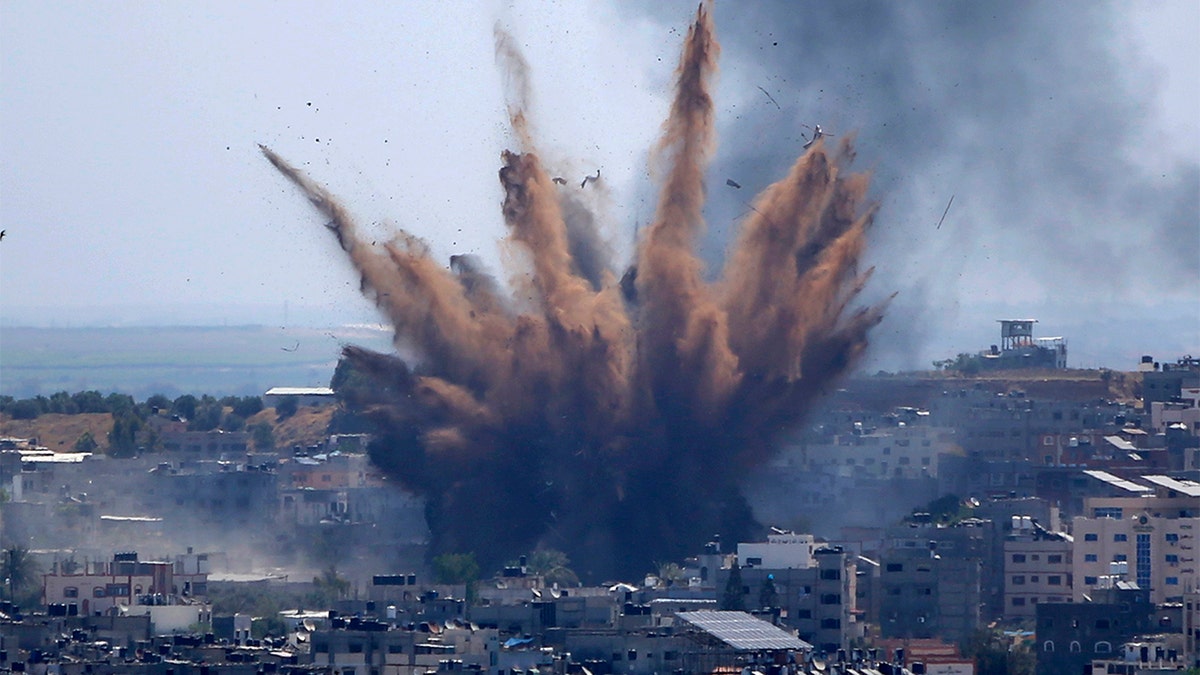Israel keeps up strikes on Hamas targets as US general warns conflict could spread
Fox News' Amy Kellogg reports from Ashdod, Israel.
As the cycle of violence escalates between Israel and Hamas militants, Israel’s Iron Dome missile defense system – and the U.S. military assistance to the country – are once again in the spotlight.
The latest round of violence was ignited over the possible eviction of Palestinian families from their homes in the East Jerusalem neighborhood Skeikh Jarrah. Coming off the heels of the Muslim holy month of Ramadan, Palestinians in East Jerusalem took to the streets and demonstrated at the Al-Aqsa Mosque, the third holiest site in Islam. Following a heavy-handed response from the Israeli security forces, Hamas militants in Gaza responded by firing rockets into Israeli cities.
Israel under Prime Minister Benjamin Netanyahu has since gone on the offensive, targeting perceived Hamas military compounds to disrupt the organization’s ability to strike Israel. As Israel launches airstrikes inside the densely populated Gaza Strip and exacts a heavy toll on civilian life, the Iron Dome land-based missile defense system is keeping Israeli citizens mostly safe from the barrage of rockets from Gaza.

Smoke rises following Israeli airstrikes on a building in Gaza City, Thursday, May 13, 2021. (AP Photo/Hatem Moussa)
BIDEN TELL ISRAEL'S NETANYAHU HE EXPECTS 'SIGNIFICANT DE-ESCULATION OF GAZA CONFLICT
The Iron Dome, the first line of defense for Israel when faced with rocket attacks, has been around 90% effective in intercepting the nearly 3,000 rockets fired from Hamas in Gaza during the current conflict. It became operational in 2011 and was integral to Israel’s defense in military conflicts with Gaza in 2012 and 2014. The United States began providing funding for Iron Dome in 2011 and 55% of the system’s components are currently manufactured in the U.S., according to the Center for Strategic and International Studies.
Israel is the largest beneficiary of U.S. military assistance, totaling over $3 billion a year, and the U.S. has provided $1.6 billion for Iron Dome since its inception. Since the creation of the state of Israel in 1948, the U.S. has provided Israel with $146 billion in bilateral and missile defense funding. Decades of U.S. policy across administrations from both parties sought to ensure Israel’s military edge over its neighboring adversaries.
Israel is considered one of the few democracies in the Middle East and the United States holds it as an integral component of its Middle East policy combating terrorism, and deterring Iran underpin strong support from Washington. Hamas, a U.S. designated terrorist organization, has controlled the Gaza Strip since 2007 and acquires weapons and other assistance from Iran in their pursuit of resistance to Israeli occupation in the West Bank.
Since the recent conflict began, more than 200 people, many of them children, have been killed by Israeli airstrikes in Gaza and at least 12 Israelis have been killed by Hamas rockets. As the conflict rages on with no end in sight, and the mounting civilian casualties in Gaza, many in the United States were calling on President Biden to review and temporarily halt the latest round of military assistance to Israel.
CLICK HERE TO GET THE FOX NEWS APP
Calls are growing for a cease-fire, with President Biden condemning the violence and civilian death toll while also stating that Israel has the right to defend itself. It is unclear what the endgame is for either side. Hamas views the current crisis as an opportunity to present itself as the sole defender of Palestinian rights in Jerusalem and the West Bank. Israel, for its part, will retaliate against every rocket fired from Gaza.
When an eventual cease-fire is declared and the missiles fall silent, one thing is clear: The decades-long Israeli-Palestinian conflict will persist.









































